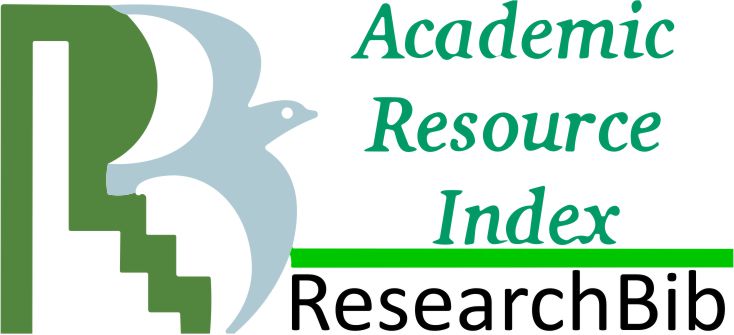DOI
10.21002/jaki.2014.01
Abstract
Auditor personality trait is an interesting topic in accounting field because this research is still rarely on accounting profession in Indonesia. The purpose of this study was to investigate the effect of work stress and dysfunctional audit behavior, with a focus on personality trait role: the big five personality and locus of control. The respondents for this study are auditors who work on public accounting firms in Bali. Moderated regressions analysis test used to examine seven hypotheses are formulated. The results showed that job stress have positive effects on dysfunctional audit behavior. Moreover it was determined that one of the personality trait, openness to experience, along with internal and external locus of control, have significant effect on the relation between job stress and dysfunctional audit behavior, but other personality traits such as conscientiousness, extraversion, agreeableness, and neuroticism do not have significant effect on the relation between job stress and dysfunctional audit behavior. This indicates that auditor personality is important to reduce the likelihood of dysfunctional audit behaviors.
References
Aube, C., V. Rousseau, and E. M. Morin. 2007. Perceived Organizational Support and Organizational Commitment: The Moderating Effect of Locus of Control and Work Autonomy. Journal of Managerial Psychology, 22 (5), 479-495. 10.1108/02683940710757209 Barrick, M. B. and M. K. Mount. 2005. Yes, Personality Matters: Moving on to More Important Matters. Human Performance, 18 (4), 359-372. 10.1207/s15327043hup1804_3 Beehr, T. A., J. T. Walsh, and T. D. Taber. 1976. Relationship of Stress to Individually and Organizationally Value States: Higher Order Needs as a Moderator. Journal of Applied Psychology, 61, 41-47. 10.1037/0021-9010.61.1.41 Berry, C. M., D. S. Ones, and P. R. Sackett. 2007. Interpersonal Deviance, Organizational Deviance, and Their Common Correlates: A Review and Meta-Analysis. Journal of Applied Psychology, 92 (2), 410-424. 10.1037/0021-9010.92.2.410 Boyd, N. G., J. E. Lewin, and J. K. Sager. 2009. A Model of Stress and Coping and Their Influence on Individual and Organizational Outcomes. Journal of Vocational Behavior, 75, 197-211. 10.1016/j.jvb.2009.03.010 Bowling, N. A. 2010. Effects of Job Satisfaction and Conscientiousness on Extra-Role Behaviours. Journal of Business and Psychology, 25 (1), 119-130. 10.1007/s10869-009-9134-0 Bowling, N. A. and K. J. Eschleman. 2010. Employee Personality as a Moderator of the Relationships Between Work Stressors and Counterproductive Work Behaviour. Journal of Occupational Health Psychology, 15 (1), 91-103. 10.1037/a0017326 Briggs, S. P., S. Copeland, and D. Haynes. 2007. Accountants for the 21st Century, Where Are You? A Five-Year Study of Accounting Students' Personality Preferences. Critical Perspectives on Accounting, 18, 511-537. 10.1016/j.cpa.2006.01.013 Chen, J. C., C. Silverthorne, and J. Y. Hung. 2006. Organization Communication, Job Stress, Organizational Commitment, and Job Performance of Accounting Professionals in Taiwan and America. Leadership and Organization Development Journal, 27 (4), 242-249. 10.1108/01437730610666000 Chen, J. C. and C. Silverthorne. 2008. The Impact of Locus of Control on Job Stress, Job Performance and Job Satisfaction in Taiwan. Leadership and Organization Development Journal, 29 (7), 572-582. 10.1108/01437730810906326 Costa, P. T. and R. McCrae. 1992. Revised NEO Personality Inventory (NEO-PI-R) and NEO Five-Factor Inventory (NEO-EEI) Professional Manual. Odessa, FL: Psychological Assessment Resources. Dalton, D., J. Hill, and R. Ramsay. 1997. Women as Managers and Partners: Context Specific Predictors of Turnover in International Public Accounting Firms. Auditing: A Journal of Practice and Theory, 16 (1), 2950-2962. Denissen, J. J. A. and L. Penke. 2008. Motivational Individual Reaction Norms Underlying the Five-Factor Model of Personality: First Steps toward A Theory-Based Conceptual Framework. Journal of Research in Personality, 42, 1285-1302. 10.1016/j.jrp.2008.04.002 Donnelly, D. P., J. J. Quirin, and D. O'Bryan. 2003. Auditor Acceptance of Dysfunctional Audit Behavior: An Explanatory Model Using Auditor's Personal Characteristics. Journal of Behavioral Research in Accounting, 15 (4), 87-110. 10.2308/bria.2003.15.1.87 Farhadi, H., O. Fatimah, R. Nasir, and W. Shahrazad. 2012. Agreeableness and Conscientiousness as Antecedents of Deviant Behaviour in Workplace. Asian Social Science, 8 (9), 2-7. Fernet, C., M. Gagne, and S. Austin. 2010. When Does Quality of Relationships with Coworkers Predict Burnout Over Time? The Moderating Role of Work Motivation. Journal of Organizational Behavior, 31 (1), 1163-1180. 10.1002/job.673 Fevre, M. L., J. Matheny, and G. S. Kolt. 2003. Eustress, Distress and Interpretation in Occupational Stress. Journal of Managerial Psychology, 18 (7), 726-744. 10.1108/02683940310502412 Gibson, J. L., J. M. Ivancevich, and J. H. Donnely Jr. 1996. Organisasi: Perilaku, Struktur, dan Proses. Edisi Kelima. Jakarta: Erlangga. Goldberg, L. R. 1990. An Alternative Description of Personality: The Big Five Factor Structure. Journal of Personality and Social Psychology, 59 (6), 1216–1229. 10.1037/0022-3514.59.6.1216 Golparvar, M., M. Kamkar, and Z. Javadian. 2012. Moderating Effect of Job Stress in Emotional Exhaustion and Feeling of Energy Relationships with Positive and Negative Behaviours: Job Stress Multiple Functions Approach. International Journal of Psychological Studies, 4 (4), 99-112. 10.5539/ijps.v4n4p99 Graziano, W. G. and R. M. Tobin. 2002. Agreeableness: Dimension of Personality or Social Desirability Artifact? Journal of Personality, 70, 696-727. Harini, D., A. Wahyudin, dan I. Anisykurlillah. 2010. Analisis Penerimaan Auditor atas Dysfunctional Audit Behaviour: Sebuah Pendekatan Karakteristik Personal Auditor. Paper dipresentasikan pada acara Simposium Nasional Akuntansi XV, Purwokerto. Hartono, J. 2004. Metodologi Penelitian Bisnis: Salah Kaprah dan Pengalaman-pengalaman. Yogyakarta: BPFE. Hsieh, Y. H. and M. L. Wang. 2012. The Moderating Role of Personality in HRM – from The Influence of Job Stress on Job Burnout Perspective. International Management Review, 8 (2), 5-18. Jaffar, N., H. Haron, T. M. Iskandar, and A. Salleh. 2011. Fraud Risk Assessment and Detection Fraud: The Moderating Effect of Personality. International Journal of Business and Management, 6 (7), 40-50. 10.5539/ijbm.v6n7p40 Judge, T. A., D. Heller, and M. K. Mount. 2002. Five-Factor Model of Personality and Job Satisfaction: A Meta-Analysis. Journal of Applied Psychology, 87, 530-541. 10.1037/0021-9010.87.3.530 Kartika, I. dan P. Wijayanti. 2007. Locus of Control sebagai Anteseden Hubungan Kinerja Pegawai dan Penerimaan Perilaku Disfungsional Audit. Paper dipresentasikan pada acara Simposium Nasional Akuntansi X, Makassar. Kraus, E. 2002. Personality and Job Performance: The Mediating Roles of Leader-Member Exchange Quality and Action Control. Ph.D Dissertation, Florida International University. Lindrianasari, J. Hartono, Supriyadi, dan S. Miharjo. 2012. Kepribadian sebagai Pemoderasi Hubungan Persepsi CEO atas Kompensasi yang Diterima pada Keinginan CEO untuk Keluar Perusahaan Secara Sukarela. Paper dipresentasikan pada acara Simposium Nasional Akuntansi XV, Banjarmasin. McCrae, R. R. and P. T. Costa. 1987. Validation of the Five-Factor Model of Personality Across Instruments and Observers. Journal of Personality and Social Psychology, 52 (1), 81-90. 10.1037/0022-3514.52.1.81 Montgomery, D. C., J. G. Blodgett, and J. H. Barnes. 1996. A Model of Financial Securities Sales Persons' Job Stress. The Journal of Services Marketing, 10 (3), 21-34. 10.1108/08876049610119776 Mount, M., R. Ilies, and E. Johnson. 2006. Relationship of Personality Traits and Counterproductive Work Behaviours: The Mediating Effects of Job Satisfaction. Personnel Psychology, 59 (3), 591-622. 10.1111/j.1744-6570.2006.00048.x Nettle, D. 2006. The Evolution of Personality Variation in Humans and Other Animals. American Psychologist, 61, 622-631. 10.1037/0003-066X.61.6.622 Patten, D. M. 2005. An Analysis of the Impact of Locus of Control on Internal Auditor Job Performance and Satisfaction. Managerial Auditing Journal, 20 (8), 1016-1029. 10.1108/02686900510625343 Respati, N. W. T. 2011. Pengaruh Locus of Control terhadap Hubungan Sikap Manajer, Norma-norma Subyektif, Kendali Perilaku Persepsian dan Intensi Manajer dalam Melakukan Kecurangan Penyajian Laporan Keuangan. Jurnal Akuntansi dan Keuangan Indonesia, 8 (2), 123-140. Robbins, S. P. 2006. Perilaku Organisasi. Edisi Kesepuluh. Jakarta: PT. Indeks Kelompok Gramedia. Robbins, S. P. dan T. A. Judge. 2008. Perilaku Organisasi: Organizational Behaviour. Jakarta: Salemba Empat. Robinson, S. L. and R. J. Bennett. 1995. A Typology of Deviant Workplace Behaviors: A Multi-Dimensional Scaling Study. Academy of Management Journal, 38, 555-572. 10.2307/256693 Rotter, J. B. 1966. Generalized Expectancies for Internal Versus External Control Reinforcement. Psychological Monographs, 80 (1), 169-214. 10.1037/h0092976 Skyrme, P., L. Wilkinson, J. D. Abraham, and J. D. Morrison. 2005. Using Personality to Predict Outbound Call Center Job Performance. Applied Human Resource Management Research, 10 (2), 89-98. Ugoji, E. I. and G. Isele. 2009. Stress Management and Corporate Governance in Nigerian Organizations. European Journal of Scientific Research, 27 (3), 472-478.
Recommended Citation
Rustiarini, Ni Wayan
(2014)
"SIFAT KEPRIBADIAN SEBAGAI PEMODERASI HUBUNGAN STRES KERJA DAN PERILAKU DISFUNGSIONAL AUDIT,"
Jurnal Akuntansi dan Keuangan Indonesia: Vol. 11:
No.
1, Article 1.
DOI: 10.21002/jaki.2014.01
Available at:
https://scholarhub.ui.ac.id/jaki/vol11/iss1/1












